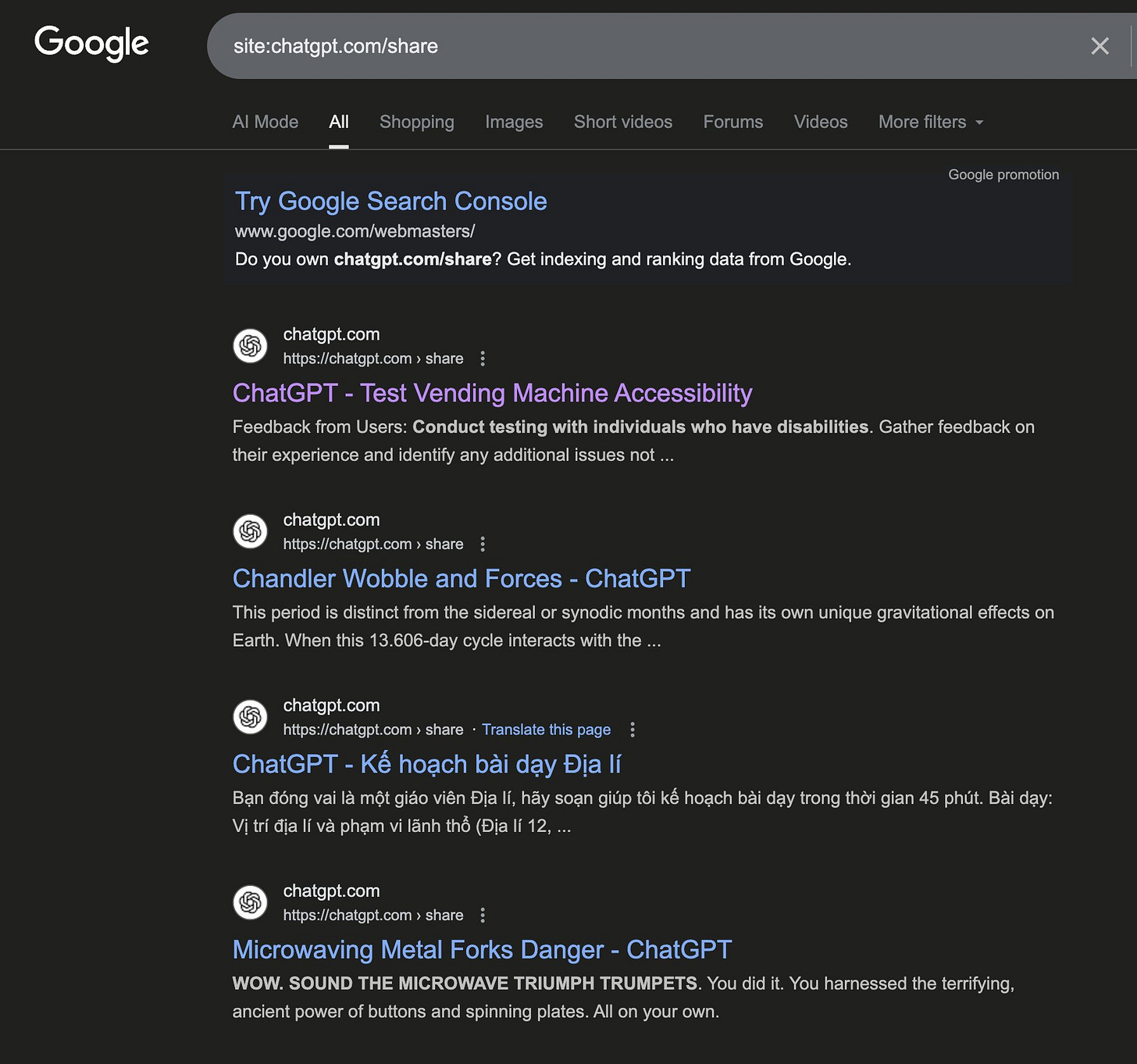ChatGPT Exposes Chats, Microsoft Edge Threatens Perplexity, Google's Deep Think, Indonesia's Inference Opportunity, & ChatGPT's Study Mode
ChatGPT's sharing indexed chats on Google, Google's Deep Think on Gemini, Microsoft Edge's Copilot threatens Perplexity, Indonesia's AI inference opportunity, and ChatGPT's study mode released
ChatGPT Conversations Showing in Google Search, Raising Privacy Concerns
Users discovered that their shared ChatGPT conversations were appearing in Google search results, with some chats containing sensitive or private information.
The issue stemmed from a "Make this chat discov…



